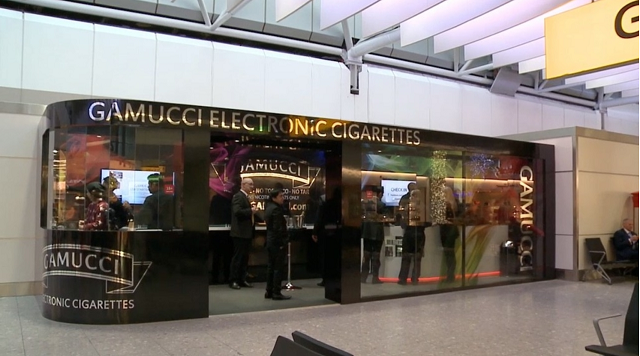Surprise: Duty Free Shops in Europe Selling a Lot of Tobacco
An annual report by Fast Market Research, detailing the trends of European business travellers as they make their way through airports, revealed some surprising results where tobacco is concerned. It turns out that duty free shops in European airports are selling an awful lot of tobacco, perhaps a lot more than many people would believe.
Fast Market Research says that the two most popular product categories sold to business travellers at duty free shops are tobacco and personal care items. Where pre-planned purchases are concerned, 90% of those surveyed said tobacco was on the list of the items to purchase. Personal care products came in second, at 78%.
The tobacco numbers are very surprising given how much headway we have made in reducing smoking rates around the world and especially Europe. Yet the numbers also reinforce something we have known about airports and flying for a long time: smoking is a very popular habit among travellers who do not otherwise deal well with the pressures of travelling.
There is also something to be said about purchasing tobacco at duty free shops within the airport terminals. It is cheaper than purchasing tobacco products on the street or at local shops. It is entirely reasonable to suggest travellers who smoke are choosing to purchase their cigarettes at airports because they know they will pay less in that environment.
Having said all of that, one must wonder whether the rising popularity of electronic cigarettes would affect the sales numbers in any way. Unfortunately, we do not know if the Fast Market Research includes electronic cigarettes in their data. If not, they should when next year’s survey is conducted. The e-cigarette market is now growing fast enough that it is having a definite impact on tobacco sales.
1. Ten-Year Timetable
For the last several years, there have been a number of analysts claiming electronic cigarettes would overtake traditional tobacco within the next decade. However, it may not take that long. A report from earlier this year says it could happen as early as 2021, given the current state of falling tobacco sales. The report went on to say Big Tobacco is likely to become heavily invested in e-cigarettes as a matter of survival. That will likely accelerate the market even more quickly
Assuming this is the case, we would expect to see increased electronic cigarette sales at duty free shops and airports. Making the case for more shops to sell e-cigarettes is the fact that some airports are now even allowing their use in controlled ‘vaping lounges’. Heathrow, for example, welcomed its first ever lounge opened last year in the airport’s brand-new terminal.
The new lounge is operated by the makers of the Gamucci brand. However, we would expect other companies to get on board in the near future. VAPESTICK would be a great candidate, being that they are one of the fastest growing brands in Western Europe. They were recently acquired by US-based Victory Electronic Cigarettes Corporation and are now poised for some serious expansion.
2. Smoking Replacement
What is the appeal of electronic cigarettes in a world that now largely views smoking as taboo? They are devices that allow smokers to continue their habit without many of the nasty consequences associated with tobacco smoking. Just the constituents of electronic cigarette vapour versus tobacco smoking alone are causing many people to give the products serious consideration.
Tobacco smoke contains thousands of chemicals and dozens of carcinogens. We all know that – it is well documented. We also know that the nicotine in tobacco is not the cause of most smoking-related illnesses and deaths. It is the chemicals and carcinogens that are causing the problem. Smokers are realizing that e-cigarette vapour is largely free from most of those chemicals and carcinogens, leading them to perceive the products as less dangerous. Whether or not that’s true is up to the scientific community. Nevertheless, public perception is very important here.
If the traveller believes the electronic cigarette is less dangerous, and he knows he will be able to use it in the designated vaping lounge at the airport, the chances of him purchasing one is pretty high. It’s likely he would rather puff on a cigarette while waiting for a departing flight if given the choice of doing so or chewing a piece of nicotine gum. After all, vaping does replicate the smoking experience rather accurately.
It will be interesting to see what next year’s report says about e-cigarette sales in duty free shops at airports. We suspect the report will be very good for the vaping industry.





 Welcome to Home Town Travel Guides.com , your source for travel guides written by locals and those who've been there and done that! ~Jeremy
Welcome to Home Town Travel Guides.com , your source for travel guides written by locals and those who've been there and done that! ~Jeremy